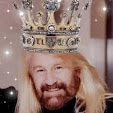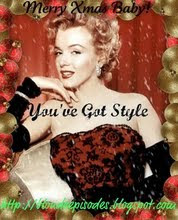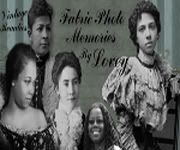Bebe Neuwirth and Ann Reinking in the Broadway revival of "Chicago"
Two assassins in the 1920's were the inspiration for a journalist from the city of Chicago to write a newspaper serial that later became a silent film, a musical dramatic film, a hit Broadway musical and even bigger hit Broadway revival, and finally a smash musical film.
The characters of Velma Kelly and Roxie Hart really existed - though not with those names. But these two women's sordid stories were the real life basis for the characters that eventually evolved in the play "Chicago."
Velma Kelly was actually Belva Gaertner. She was a cabaret singer with the stage name Belle Brown. In 1917, she entered her second marriage with William Gaertner, a millionaire 20 years older than her. But months later, Gaertner annulled the marriage when he learned that the first husband of Belva was still legal. In 1924, Bevla was accused of shooting and killing her lover, Walter Law, a married man with a son. The young man was found in the front seat of Belva's car with a bottle of gin and a gun at his side. The suspect was arrested in her apartment with her hands and clothes covered in blood. She simply said, "I'm drunk and I cannot remember what happened." Who was first to blame her? Her ex-husband, who said she was psychotically possessive and once threatened him with a butcher knife when he wanted to annul their marriage. While in prison, Belva in her defense alleged that the victim could easily have committed suicide - and she was released three months later.
Maurine Dallas Watkins byline photo
Maurine Dallas Watkins was a journalist who wrote for the Chicago Tribute and she covered the two murders that occurred in the city; she made a police report and some critical writings for the paper, with humorous and ironic touches.
Ms. Watkins was stucks by how such an horrific eevent such as murder could cause so much commotion, fanfare, and ultimately sympathy, and wrote texts that were part of the original story without a title at the time, and which also emphasized corruption within the city.
She characterized Beulah as "beauty of the cell block" and Belva as
"most stylish of Murderess Row." Though both women, after months of press
coverage in Chicago's seven daily papers, were found not guilty at
trial, Watkins firmly believed they were guilty.
Leopold and Loeb at trial
Watkins also briefly reported on the noted Leopold and Loeb
kidnapping and murder case, which sensational qualities quickly
overshadowed the coverage of the Belva Gaertner verdict. She wrote a thinly fictionalized account of the two murders. She first called it "The Brave Little Woman," then "Chicago, or Play Ball" (first copyrighted version: pre-production manuscript), and finally "Chicago"
(second copyrighted version: post-production script). Beulah Annan
became "Roxie Hart"; Belva Gaertner, "Velma Kelly"; Albert Annan, "Amos
Hart"; and the two lawyers, William Scott Stewart and W. W. O'Brien,
were combined in a composite character, "Billy Flynn" (O'Brien seems to
have been the closest direct match).
Broadway and film star, Jeanne Eagles
Legendary Broadway director, George Abbott
Francine Larrimore as Roxie Hart in the original Broadway production of "Chicago" 1926
Director Sam Forrest was replaced by George Abbot at the request of Jeanne Eagels (Roxie Hart); but Eagels quit the show within a few days, and Francine Larrimore replaced Eagels. Chicago opened on Broadway
on 30 December 1926 (though the run is listed as 1927). The play ran
for a respectable 172 performances, then toured for 2 years (with a
then-unknown Clark Gable appearing as Amos Hart in a Los Angeles production ). A 1927 silent film version was produced and supervised by Cecil B. DeMille and starred former Mack Sennett bathing beauty Phyllis Haver as Roxie Hart. It was adapted as "Roxie Hart" in 1942 with Ginger Rogers
in the title role. This 1942 film version eliminated all the
murderesses except the unnamed Velma Kelly, while the stage and screen
musical versions eliminated Jake, Babe, and several other characters.
Phyllis Haver as Roxie Hart in the 1927 silent film "Chicago"
Poster for the 1942 film version with Ginger Rogers starring as "Roxie Hart"
Original theatrical trailers for the film "Roxie Hart" starring Ginger Rogers.
Beulah and Belva - or, rather, Velma and Roxie - faded into obscurity for twenty five years, overshadowed by more infamous and notorious and newer murderers and murderesses - though no others that became entertainment stars because of their notoriety (hmmm - does Tanya Harding count?!).
Then, in 1960, actress Gwen Verdon read the play and asked her husband, Bob Fosse, to create and adaptation in musical format. Fossee spoke with Watkins on more than five occasions to obtain the rights, but he didn't succeed until the author passed away in 1969. It was then that producer Richard Fryer, Gwen Verdon and Bob Fosse began to devise the world of murder from the resources of vaudeville and comedy.
"Chicago: A Musical Vaudeville" opened on June 3, 1975 at the 46th Street Theatre, and ran for a total of 936 performances, closing on August 27, 1977. The opening night cast starred Chita Rivera as Velma Kelly, Gwen Verdon as Roxie Hart, Jerry Orbach as Billy Flynn, Barney Martin as Amos Hart and Mary McCarty as Matron Mama Morton.
A revival, simply titled "Chicago" opened on Broadway in November 14, 1996 - and is still running today (January 23, 2017). The original revival was directed by Walter Bobbie and choreographed by Ann Reinking, who was married to Bob Fosse after he and Gwen Verdon divorced, and also starred as Roxie Hart, with Bebe Neuwirth as Velma Kelly and James Naughton as Billy Flynn. "Chicago" the revival won six Tony awards, more than any other revival to that date.
As a special treat to Broadway fans and trivia lovers, the film included a cameo by Broadway legend Chita Rivera, the original Velma Kelly, playing one of the 'merry murderesses of murder row."
Now, go make something beautiful!
Then, in 1960, actress Gwen Verdon read the play and asked her husband, Bob Fosse, to create and adaptation in musical format. Fossee spoke with Watkins on more than five occasions to obtain the rights, but he didn't succeed until the author passed away in 1969. It was then that producer Richard Fryer, Gwen Verdon and Bob Fosse began to devise the world of murder from the resources of vaudeville and comedy.
"Chicago: A Musical Vaudeville" opened on June 3, 1975 at the 46th Street Theatre, and ran for a total of 936 performances, closing on August 27, 1977. The opening night cast starred Chita Rivera as Velma Kelly, Gwen Verdon as Roxie Hart, Jerry Orbach as Billy Flynn, Barney Martin as Amos Hart and Mary McCarty as Matron Mama Morton.
Gwen Verdon (Roxie Hart), Chita Rivera (Velma Kelly), Jerry Orbach (Billy Flynn)
Barney Martin (Amos Hart), Mary McCarty (Matron Mama Morton)
A revival, simply titled "Chicago" opened on Broadway in November 14, 1996 - and is still running today (January 23, 2017). The original revival was directed by Walter Bobbie and choreographed by Ann Reinking, who was married to Bob Fosse after he and Gwen Verdon divorced, and also starred as Roxie Hart, with Bebe Neuwirth as Velma Kelly and James Naughton as Billy Flynn. "Chicago" the revival won six Tony awards, more than any other revival to that date.
In 2002, a brash, sassy, colorful and exuberant film version directed by Rob Marshall was released to universal applause. Film musicals had sunk to unpopularity at the time, and it was considered a great risk to invest so much money in such a dicey endeavor. But, "Chicago" broke box office records, won best picture awards by both the Golden Globes and the Academy Awards and revived a uniquely American genre: the film musical.
Renée Zellweger as Roxie Hart, Catherine Zeta Jones as Velma Kelly, Richard Gere as Billy Flynn
The film version starred Catherine Zeta-Jones as Velma Kelly, Renée Zellweger as Roxie Hart and Richard Gere as Billy Flynn, along with John C. Reilly as Amos Hart, Queen Latifah as Matron Mama Morton, and Christine Baranski as Mary Sunshine (a nod to Maurine Dallas Watkins herself).
John C. Reilly (Amos Hart), Queen Latifah (Matron Mama Morton), Christine Baranski (Mary Sunshine)
As a special treat to Broadway fans and trivia lovers, the film included a cameo by Broadway legend Chita Rivera, the original Velma Kelly, playing one of the 'merry murderesses of murder row."
Chita Rivera cameo in film version of "Chicago"
From tabloid fodder to play to film to talkie to musical to musical film ... it will be interesting to see where the next stop will be on the journey through history of Beulah and Belva!
¸.•´¸.•*´¨) ¸.•*´¨)(¸.•´
(¸.•´♥ Tristan ♥


































































































2 comments:
Chicago is one of my favorite musicals--thank you for posting its fascinating history!
Very cool history of Chicago Tristan! I had no idea it was even based on truth!duh!
I have never seem it on Broadway,only as a movie, and will be sure to watch it again,with new insight!
Thanks so much for taking the time to post and share this interesting information!
Have a great week!
Jackie ")
Post a Comment